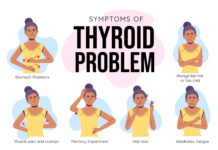Newcastle University Experts are involved in a study that aims to distinguish healthy tissue from tumour tissues.
January 23, 2024: Surgeons frequently have to rely on their hands and eyes to guide them in deciding where to make incisions to remove a patient’s tumour while preserving the healthy tissue. This traditional method can be subjective and prone to human error. To enhance surgical precision, surgeons are now incorporating advanced technologies such as imaging techniques. These innovations provide real-time visualization and guidance, enabling surgeons to accurately locate and remove tumours while minimizing damage to surrounding healthy tissue.
Newcastle University Experts and a group of scientists have created a visual aid that uses fluorescent injection and high-speed cameras to differentiate between tumour and healthy tissue in a variety of cancer types.
Fluorescence lifetime (FLT) imaging is a new imaging technology that was assessed by experts using specimens from over 60 patients. Including those from Newcastle Hospitals, who had surgery for different types of cancer. Nature Biomedical Engineering also published a paper on this study. The approach can increase the precision of cancer procedures and achieved over 97% accuracy across all tumour types. Researchers have explored numerous technologies, such as fluorescent imaging and advanced microscopy, to enhance the visualization of tumours during surgery; however, they have not extensively implemented these technologies, which remain primarily limited to particular cancer types or subtypes.
Fluorescence imaging can target cancer-specific molecules with dyes, however, because these molecules’ expression varies considerably within and between tumour types. Traditional imaging techniques may not be as accurate in detecting tumour margins. Or the boundaries of normal tissue around a tumour. The team’s method, called FLT imaging, adopts a different approach. Rather than depending solely on dyes to target cancer, the method makes use of high-speed cameras to identify alterations in the characteristics of the light that tissues release.
Newcastle University Experts and the team used patient samples and the same principle in their present investigation. The group started by examining samples from individuals having surgery on their heads, necks, and livers. ICG injections were given to the patients at least one day before the procedure.
“Our contribution has included input from patients undergoing surgery for musculoskeletal cancers. Who kindly donated their tumours for research and also the NovoPath laboratories. Who were able to support the processing of the tissue. We look forward to the next developments which will put Newcastle at the forefront of the introduction of this technology into clinical practice.”, said Dr Kenny Rankin. Honorary Senior Lecturer at Newcastle University and Consultant Orthopaedic Surgeon at Newcastle Hospitals.
Expanding upon these preliminary findings, the group worked in conjunction with several institutions to assess specimens from over sixty patients. Exhibiting a variety of cancer types, including liver, brain, tongue, skin, bone, and soft tissue cancers. The group identified a cellular FLT change present in several individuals and tumour types. Additionally, the method could differentiate between benign and metastatic lymph nodes. All things considered, it was over 97% accurate in differentiating between cancer and healthy tissue.
Also Read: Breaking into Fashion Design: Tips for New Aspiring Designers
Contribution from patients
Dr. Kenny Rankin added, “On behalf of the North of England Bone and Soft Tissue Tumour Service it has been exciting to work on this project.”
Newcastle Health Innovation Partners (NHIP) includes both Newcastle Hospitals and Newcastle University. As one of the UK’s eight esteemed Academic Health Science Centres (AHSCs). NHIP brings together collaborators to provide superior patient care, health education, and research.
This year educate yourself and develop your career with EdTech Platform EasyShiksha





































































